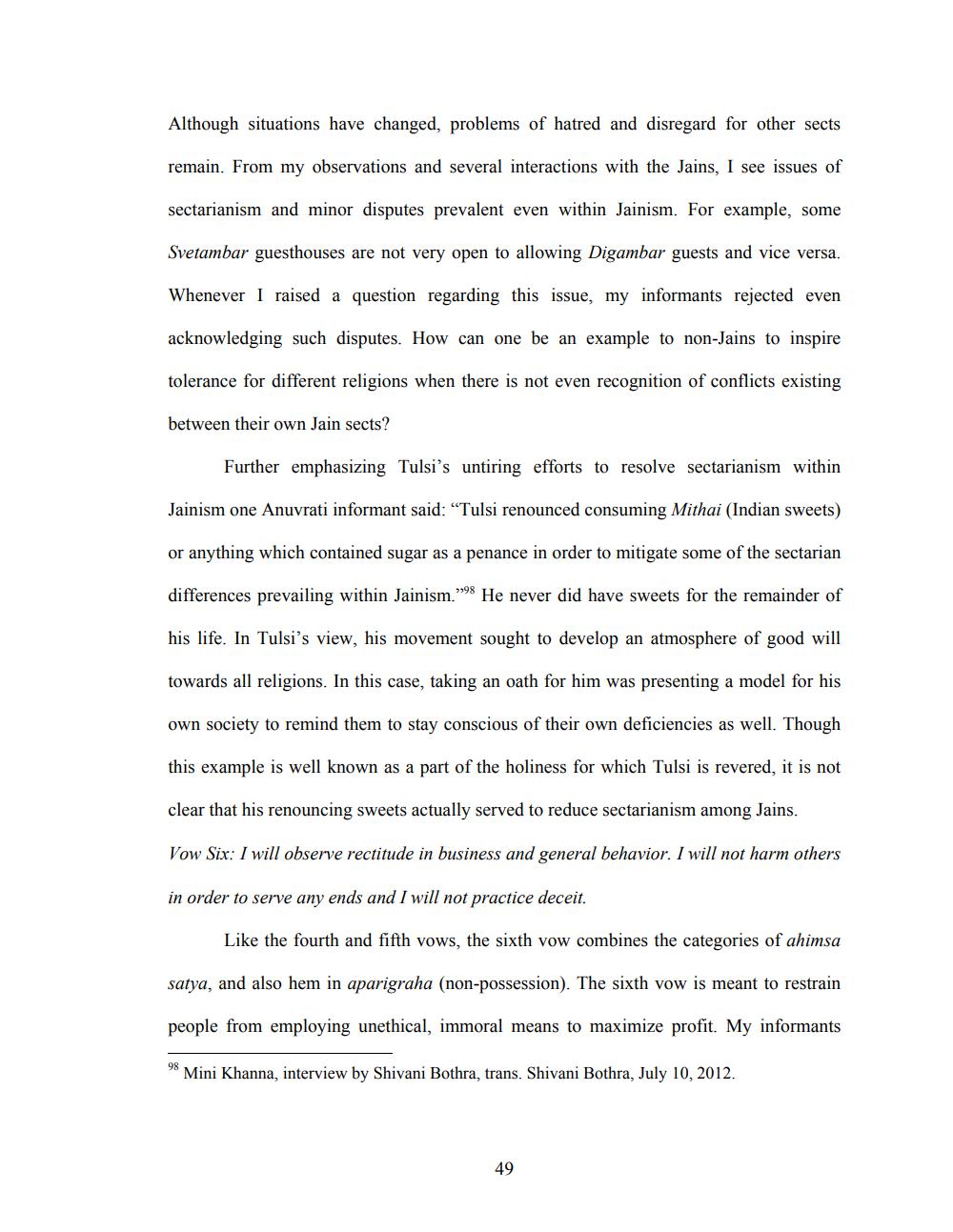________________
Although situations have changed, problems of hatred and disregard for other sects
remain. From my observations and several interactions with the Jains, I see issues of
sectarianism and minor disputes prevalent even within Jainism. For example, some
Svetambar guesthouses are not very open to allowing Digambar guests and vice versa.
Whenever I raised a question regarding this issue, my informants rejected even
acknowledging such disputes. How can one be an example to non-Jains to inspire tolerance for different religions when there is not even recognition of conflicts existing
between their own Jain sects?
Further emphasizing Tulsi's untiring efforts to resolve sectarianism within
Jainism one Anuvrati informant said: "Tulsi renounced consuming Mithai (Indian sweets)
or anything which contained sugar as a penance in order to mitigate some of the sectarian
differences prevailing within Jainism."98 He never did have sweets for the remainder of
his life. In Tulsi's view, his movement sought to develop an atmosphere of good will
towards all religions. In this case, taking an oath for him was presenting a model for his
own society to remind them to stay conscious of their own deficiencies as well. Though
this example is well known as a part of the holiness for which Tulsi is revered, it is not
clear that his renouncing sweets actually served to reduce sectarianism among Jains.
Vow Six: I will observe rectitude in business and general behavior. I will not harm others
in order to serve any ends and I will not practice deceit.
Like the fourth and fifth vows, the sixth vow combines the categories of ahimsa
satya, and also hem in aparigraha (non-possession). The sixth vow is meant to restrain
people from employing unethical, immoral means to maximize profit. My informants
98 Mini Khanna, interview by Shivani Bothra, trans. Shivani Bothra, July 10, 2012.
49




